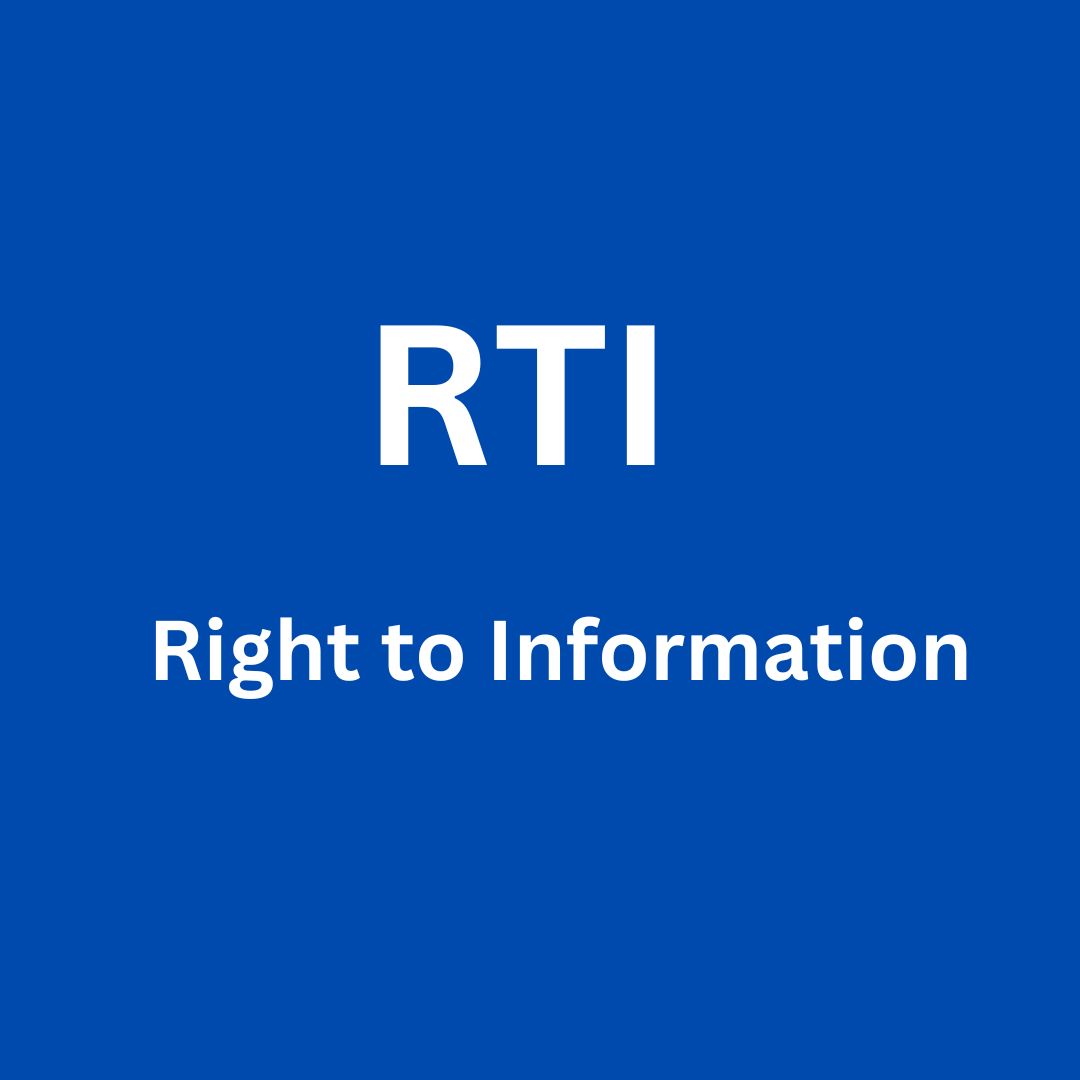
The Right to Information (RTI) refers to the legal right that allows individuals to request and obtain information from public authorities. This right is often seen as a crucial component of transparency, accountability, and good governance in a democratic society. The idea is to empower citizens by providing them access to information held by public institutions, enabling them to make informed decisions, participate in public discourse, and hold authorities accountable for their actions.
Key features of the Right to Information include:
Access to Information: Individuals have the right to request and receive information held by public authorities. This information can pertain to government policies, decisions, actions, and other relevant matters.
Transparency: The RTI aims to promote transparency in government operations by making information accessible to the public. This helps prevent corruption and fosters public trust in governmental processes.
RTI : Right to Information
Accountability: By providing citizens with the means to access information, the RTI serves as a tool for holding public officials accountable for their decisions and actions.
Democratic Participation: Access to information is considered essential for meaningful democratic participation. Informed citizens are better equipped to engage in public debates, contribute to policy discussions, and make well-informed choices in elections.
RTI : Right to Information
Countries around the world have enacted legislation or constitutional provisions to establish and protect the Right to Information. The specific details of RTI laws can vary, but the overarching goal is to ensure transparency and empower citizens in their interactions with public institutions.

















